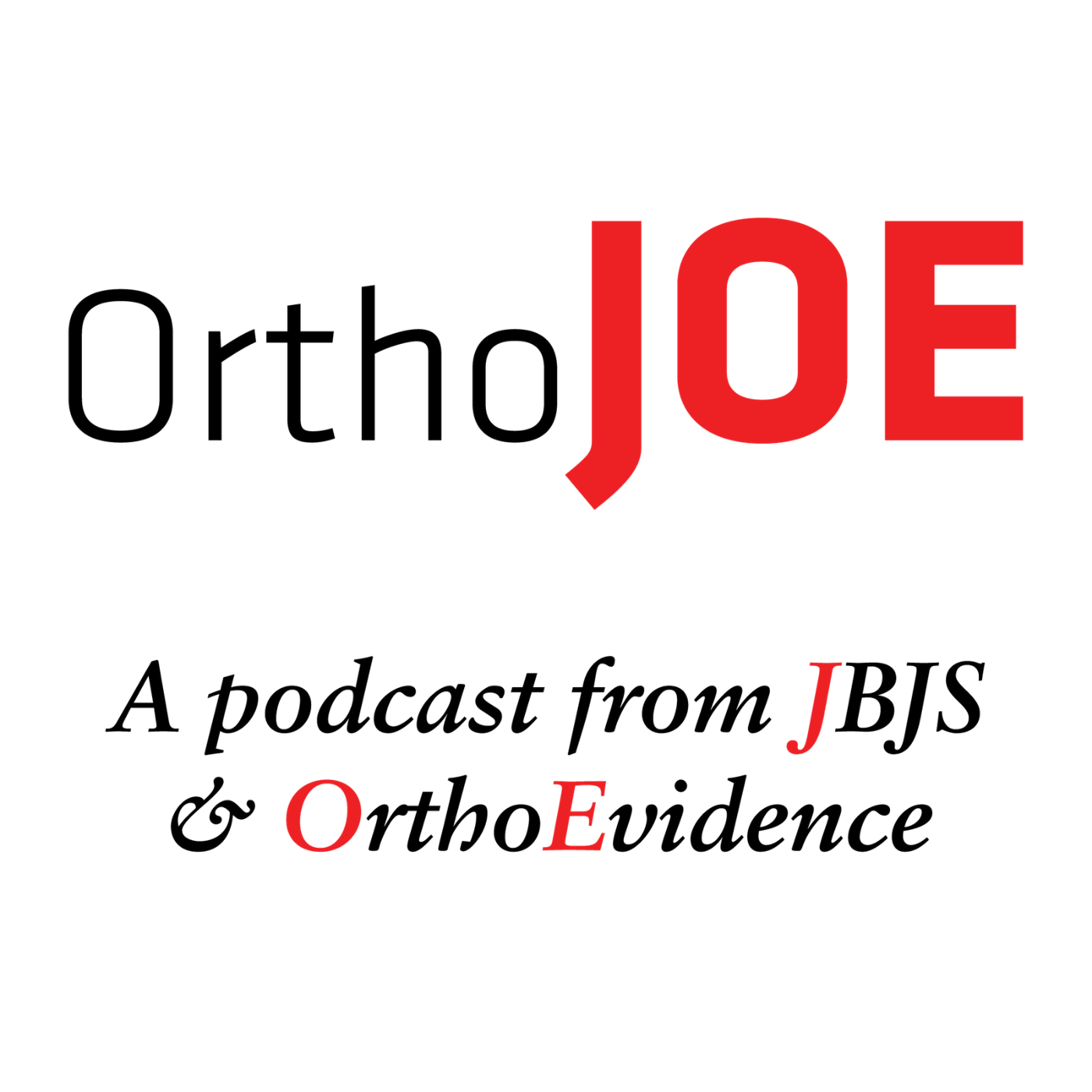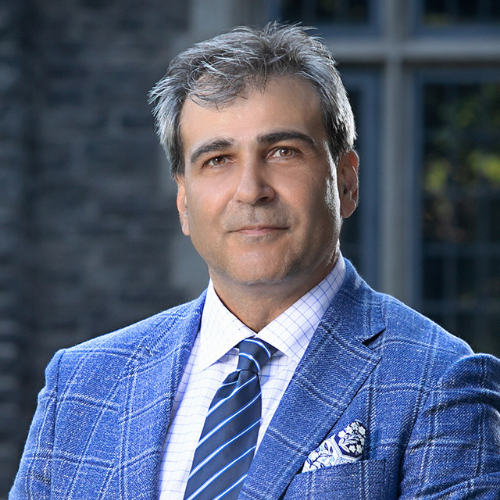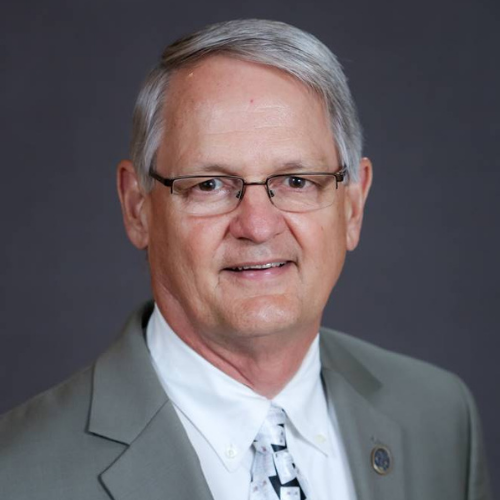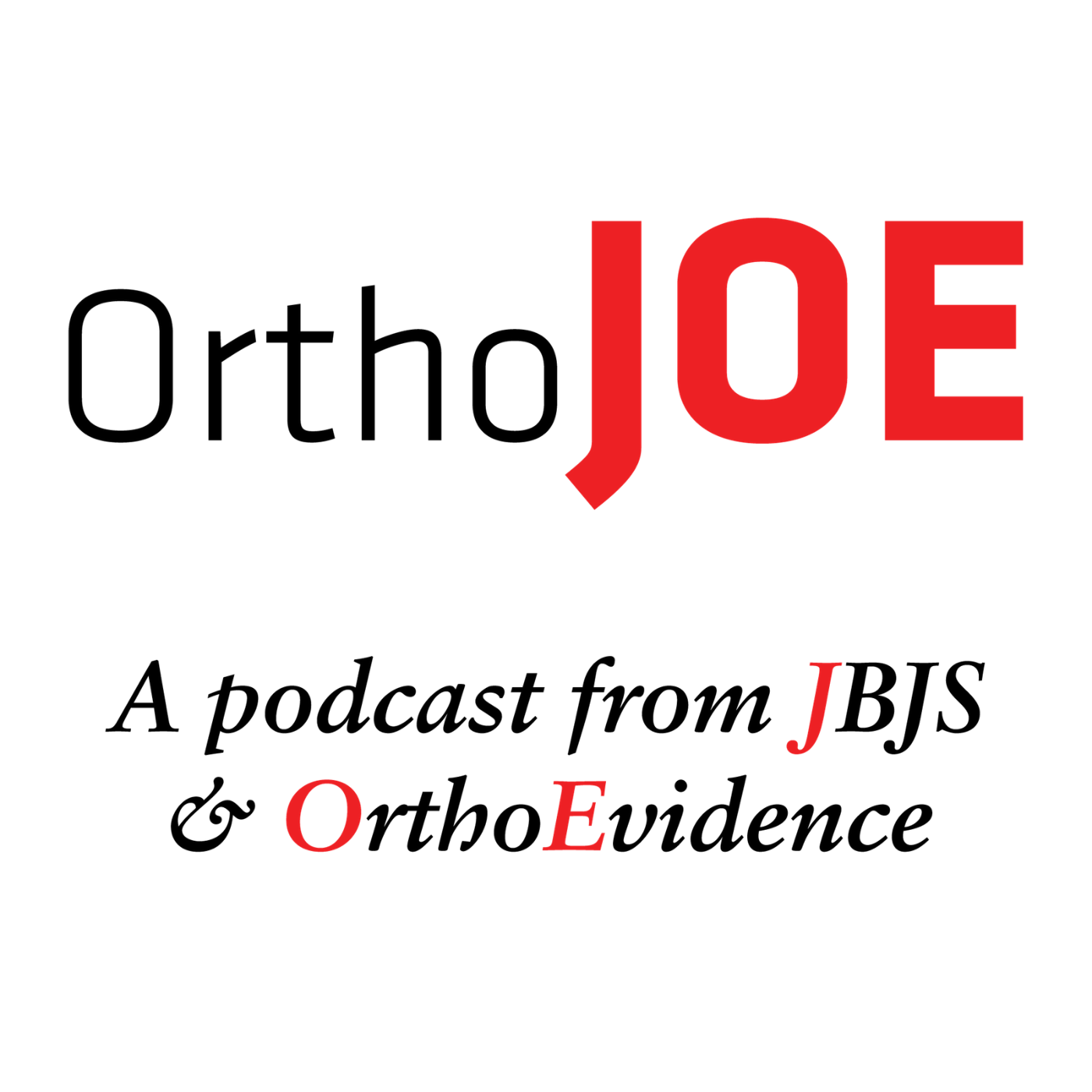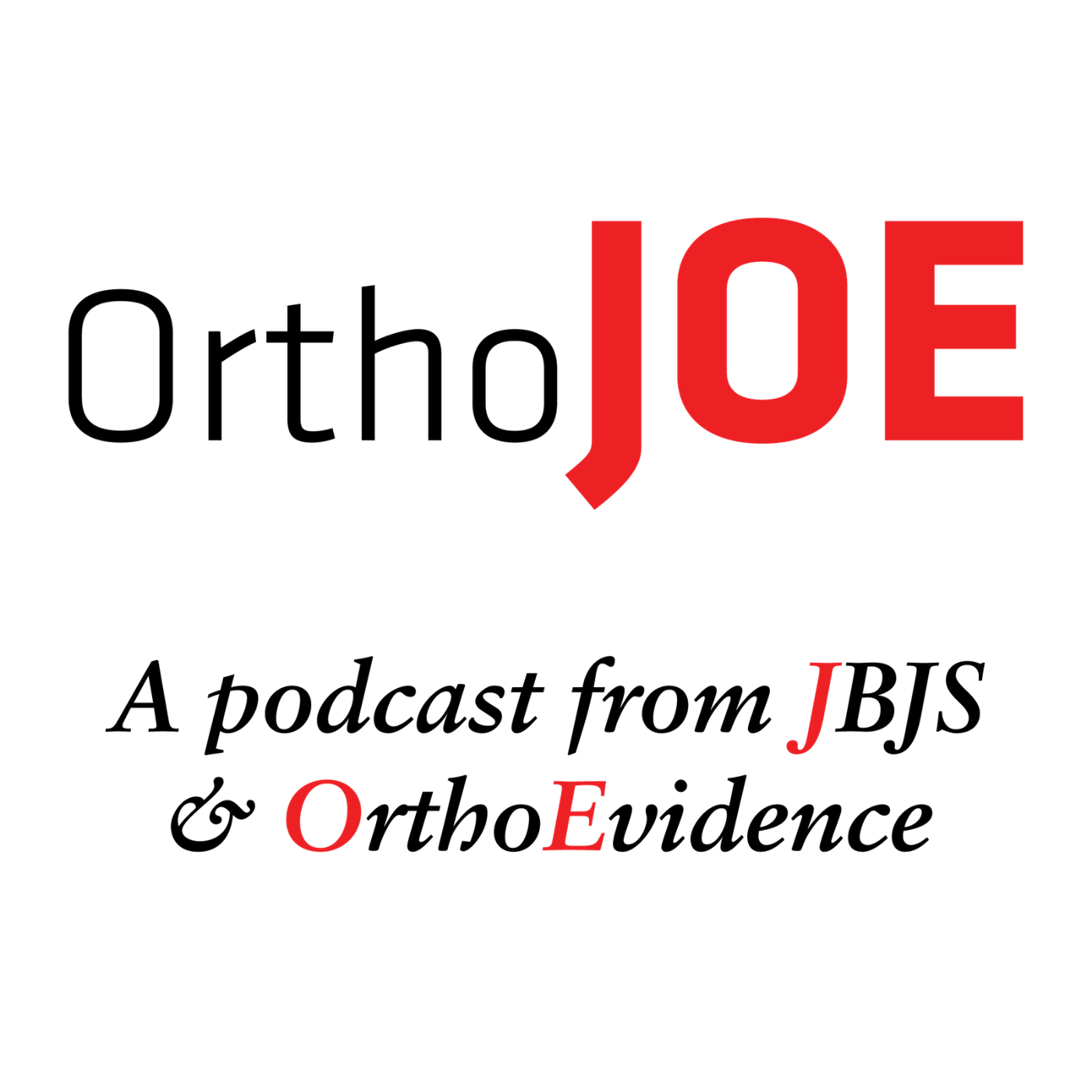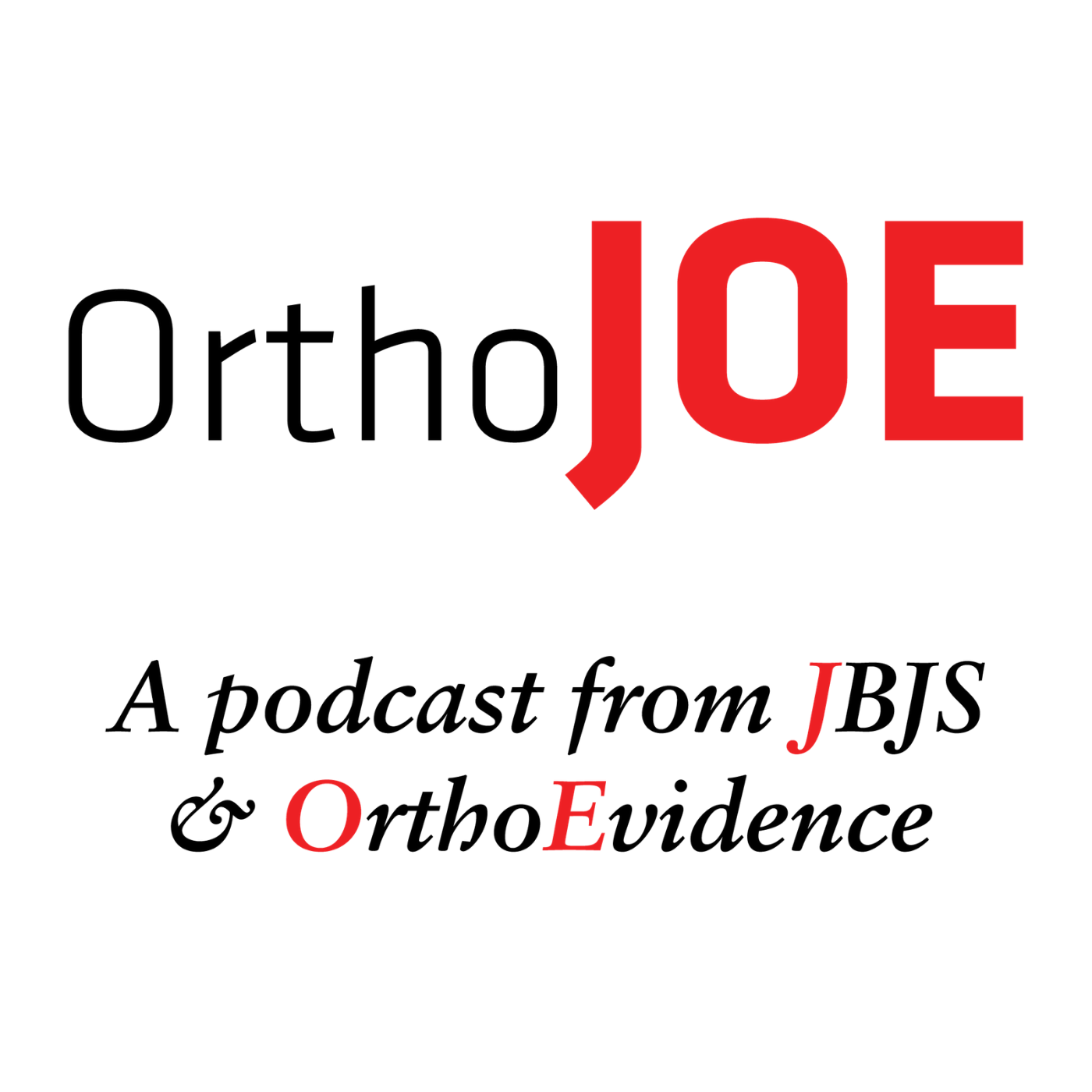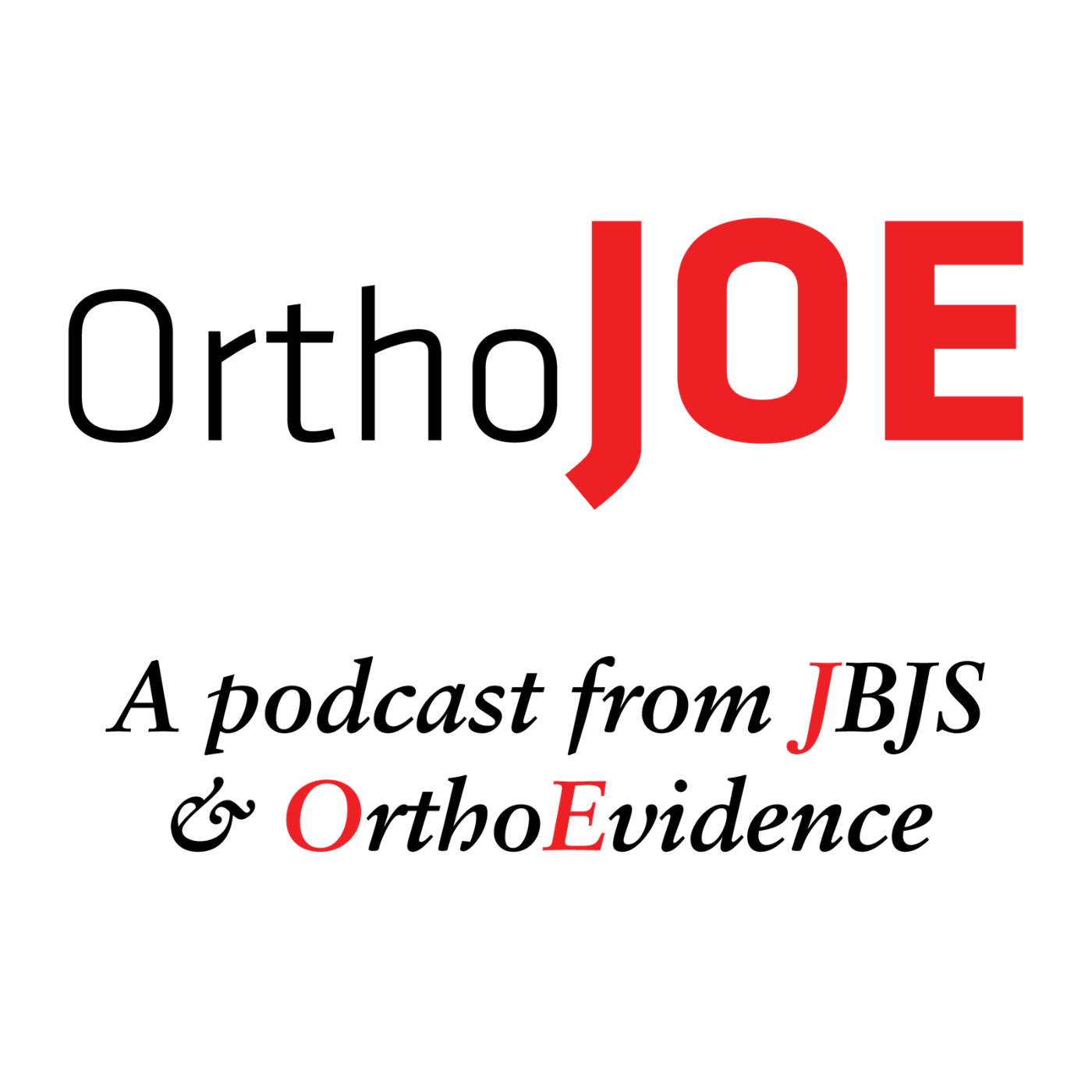Episode Transcript
[00:00:03] Speaker A: Welcome to the Ortho Joe Podcast, a joint production of the Journal of Bone and Joint Surgery and Ortho Evidence.
Join hosts Mohit Bhandari and Mark Swankowski as they discuss current topics and publications in the world of orthopedics and beyond.
[00:00:19] Speaker B: Yeah, good morning again, Mo. We're doing sequential this morning, so unfortunately I'm already drained my coffee and I bet you stranger Ortho Joe mug as well.
[00:00:29] Speaker C: So working away, sipping away.
[00:00:31] Speaker B: But we're properly caffeinated and we're in the middle of a series of interviews introducing our listening audience to the new members of your executive team on the journal. So I'll let you introduce Michelle for our listeners.
[00:00:47] Speaker C: Sure. So I suspect some of you definitely who are in the subspecialty of musculoskeletal oncology know of Dr. Gert's name, but Michelle Gert is a professor of orthopedics. Orthopedic surgery, has a long and illustrious career. Lots of papers, lots of really important contributions to the surgical literature, both as a methodologist. I think she started her career and she'll probably tell us a little bit about it as a fundamental scientist and then did the actual transition to clinical trials. And I actually remember the day that happened, which is pretty cool to be part of that and has taken on a really important role, I'd say, in the last five to seven years or so, just helping across a variety of journals in the past, I think just really working with journals, helping with the editorial process, being really proactive around strategy. And we couldn't be more pleased to have her join us on the executive editor team. Small group of individuals who are primarily focused, Mark, as you know, on helping us with the strategic direction of the journal in a very. You can argue and say that we have some changing times ahead overall in publishing and then having as many thoughtful people around I think will be really helpful. So welcome, Michelle, and certainly do share a little bit of your story with us because I think, I think I've preceded it too much and I think you got lots of things to fill in.
[00:02:12] Speaker D: Thank you and good morning, Mo and Mark. I have my grapefruit juice.
There's no caffeine.
[00:02:20] Speaker C: There's no. Is there caffeine and grapefruit juice? I didn't know there was caffeine.
[00:02:23] Speaker D: So sour. Wakes me up. I love it.
But thank you for. I'm very happy to. To meet with you this morning and I'm absolutely thrilled to be working with you in with jbjs. And so my background is an orthopedic oncologist, as you mentioned. And I've always had an interest in research. I like, I was very curious. I guess that's a way to encapsulate the way I think about things, whatever I see clinically. So that drove me to do basic science research and residency because I was curious about what I was seeing.
And so I carried that over through fellowship and then starting in my independent career at McMaster. And I started with running a research lab studying bone tumors. And I loved it. But then, of course at McMaster, I felt that the better mentorship, and that, like, that's an understatement, by far the best mentorship probably in the world was with Mo and his mentors.
So I made the decision to switch over from basic science to clinical research. And that is really 100% because of Mo.
And so I will always be grateful for that because I really have enjoyed that transition and the type of research that I've been able to do. In clinical research, I do focus on randomized controlled trials in large international, multi center. So those. Each of Those can take five to 10 years, depending on what the actual protocol is and how long the collaboration takes. So each of these are quite large studies, but they are a lot of fun because I get to work with my colleagues around the world. And orthopedic oncology is very. It's a small field and we all know each other, and so we're all very close. And so working with people that are really your friends has been just a joy, and I'll always be grateful for that opportunity.
[00:04:06] Speaker C: Now, Michelle, you give a perspective beyond Canada, right? I mean, you did a lot of your undergraduate training, I believe, right, in the US Maybe you could share a little bit about that. And also now you're also working in the United States. How do you think the culture of research is similar, different in. And maybe you can look at U.S. canada, but I think broadly North America and the world. And how do we ultimately work together to globalize the opportunities that we have around the world?
[00:04:35] Speaker D: Yeah, and that is very true in that as someone who considers ourselves very Canadian, I've sort of been termed can American because my undergraduate and my medical school, my residency, were all in the United States, though I grew up in the Toronto area. And so then I went back to Canada for my fellowship, and then I started working at McMaster. So at that point, I've sort of split my life between the United States and Canada.
And then in the past few years, I was recruited to the University of Maryland to work clinically and they have been phenomenal in accommodating me because I was very adamant that I wanted to keep my family in the Toronto area for various reasons. Kids in high school, parents in the area.
So I've been able to commute back and forth and work at the University of Maryland clinically and collaborate research between the University of Maryland and McMaster University, which is a paradigm that actually you and Sheila Sprague and Gerard Slobozian developed. And so this, we're just strengthening those collaborations. So it's been fascinating to go back and forth across the border and see, see the different cultures both in medicine and in research.
And so I'll focus on research.
I would say there are brilliant people on both sides of the border and I'm privileged to work with those brilliant people. I do think Americans have more resources that are available to them, but Canada is scrappy and they can get it done with the less with lower resources. That's what I found. How to be more scrappy, how to be more efficient with your resources to try to get it done.
So both have advantages because Americans are so smart and they have so much ambition and are so driven and have such incredible resources that it's really inspiring.
But I do know that if you cut the resources and you're ingenious with how you approach your research and your research team, you can actually get it done. So in a way, when you work together with people on both sides of the border, you can have this symbiotic relationship where you have people that have the resources and the drive, but also the Canadians that are able to sort of even figure out how to get it done with less. So that in the end, this international collaboration is so much more powerful. And when we expand that to randomized trials internationally, so we work with people in South America, Europe, Australia, Southeast Asia, and you see what resources they have, some much less and some more. In the end, we all figure out how to get it done together. And so it's fascinating to see how you can work with a group of people that have much less resources and help them get it done. And then you can tap into the resources of those that have more resources.
[00:07:23] Speaker B: Well, I can imagine that you didn't anticipate in this latest career move that you'd have a chance to have the, the support environment slashed.
So the scrappiness that you've brought down from Canada, I think are extremely helpful these days as we try to adjust to the ever changing environment at the federal funding level for this type of research. So we're looking forward to your insights as to how to navigate this difficult time. But I wanted to.
I think much of our audience is aware that you have been responsible for the largest and perhaps first well done RCT in the field of musculoskeletal oncology. And can you take us back to how you started that and how difficult it was? Well, I know it's difficult, but can you just go back to the early days, the inspiration for it, how you selected the topic, et cetera?
[00:08:21] Speaker D: Absolutely. Well, so the trial was a randomized trial for lower extremity endoprosthetic reconstruction in oncology cases. So for. Mostly for primary bone tumors, but some with metastatic bone disease.
So it was. It's a drug trial, long versus short antibiotic, postoperatively. And it's. It's a question that resonates with pretty much anybody who does those surgeries. I did a big case yesterday, a very large endoprosthetic reconstruction in a patient who's on chemotherapy. And, you know, the thought is, you know, I want to get more and more antibiotics because I want this patient not to have an infection. But the question is, does more antibiotics actually prevent infections? Isn't. Isn't enough is enough.
So the trial was a parody trial, and we compared 1 versus 5 days of post op antibiotics intravenous, and it was blinded. So both the. Both the care providers, so the nurses and the physicians, surgeons, were blinded as well as the patient. So how did that get started? Well, first, as I explained, I was running a research lab, and I felt that because I was at McMaster and had Mo as a mentor, I felt the responsibility that maybe I should be taking up randomized trials in my field because no one else had the infrastructure and resources and mentorship that I had. So I sat down with Mo and we were in the middle of a evidence based medicine course that he was teaching and I was learning.
[00:09:46] Speaker C: And that was at the. Wasn't that ORS meeting. I thought it was. And Brad Petrasor was there. I don't know why I remember.
[00:09:51] Speaker D: Brad was definitely there, but it was on McMaster campus.
It's the course that Gord ran.
I had to teach evidence based medicine. And it was gorgeous June day. And I said, mo, I need to switch. It's important that orthopedic oncology has someone to at least start the process of randomized trials and eventually, hopefully train younger surgeons to learn how to do randomized trials, not just how to design them, but also how to ask for help and who to ask for help. And how to grow that way.
So you were very supportive. And I remember you saying, even if you don't get funding, I'm going to help you do this. I'm going to. I'm going to give you a research coordinator and you're going to get this done. And because of that support, I was able to eventually get funding and complete the trial. And it did take, you know, from the time we had that discussion that day until it was published, it was 10 years.
So it was huge. It was a big effort, but. And we did it. We were scrappy. When I look back at how much funding we had, yeah, it was a really, really decent funding, but it's not nearly what you would think you need for a large trial. We had over 50 sites around the world, randomized patients. So to coordinate that was a tremendous amount of resources and skill. But we got it done. And so. So that's basically my background with research. And we continue to do that kind of research even now after the publication of that trial. We have two more trial are ongoing.
[00:11:19] Speaker C: Well, it's funny hearing you say all these really kind things, because I like as you're talking about this, Michelle, I go back to 1996 with Gordon Guide, and he said, who do you think we should contact? And I'd open up a book. And I said, I think there's a Dr. Swinkowski. He goes, do you know him? I said, I don't know. He goes, okay, call him.
So I made that call nervously. And because he opened doors, we got our very first sprint trial, which took exactly 10 years. So here you go. Right. I'm sitting here smiling away, looking at you and then also looking at Mark as being two really important people who have enabled really important trials in our field and research in our field. Let me ask you this, if I can just make you think future. Right. So you've done a lot. When you think about where journals are going, generally the publishing area is going to.
Where do you think, for all of us is the great opportunity that may also be related to the greatest threat and maybe one or the other. But what's your area of interest in saying, strategically, this is where I really want to help?
[00:12:29] Speaker D: Yeah. The greatest opportunity, and it continues to be related to our ability to communicate electronically and to globalize our research.
So I have a lot of experience with global research, and what I do would not have been possible in the days where we had to send paper copies of the case report forms, or if someone had a question about whether a patient's eligible or not they'd have to call me and wait till I'm out of the operating room.
So I think that this ability to contact and connect globally instantaneously, both by video or written communication, will allow journal publishing to really focus on global studies and global input so that the research will impact anyone who actually reads it. Because you're not just reading a study about a center in a certain country with a certain practice, you're actually studying research that was produced by a global groups or by individual global groups that have come together.
So is that really a threat? Not really. What is a threat is electronic communication and the ability to produce studies through AI or large language models that are not actually real, that are fake.
So there's a lot out there in technology that has completely transformed how we publish. And you and I are in the age group where I remember submitting a paper to JB JS required 10 paper copies and then you had to get six copies of each figure and then write figure A, copy 1, figure A, B, copy 2 and put that all in the mail. And so now that you can just click a button and submit and everybody around the world can do that and now have language, large language models, produce papers, then we are in a situation where we might have difficulty determining what's real and what's not.
At the same time, we can actually do more research effectively globally.
So it's this technology that's the, it's a conflict between what we can use, what we help us push forward globally. But also there is that threat.
[00:14:37] Speaker C: Yeah, I think we're all feeling that.
[00:14:39] Speaker B: Yeah, that's a good guy, bad guy battle that constantly throughout history we have to deal with. And now it's just so much more fast and easy than it was a decade or so ago. I want to return to the topic of how you built a global network and have worked with colleagues in low resource environments. And maybe if you can tell our listening audience a little bit more about how do you identify individuals that are working in these environments that don't have support yet are willing to collect high quality data? How do you identify those people?
What assistance can you provide to help these trials get done?
[00:15:22] Speaker D: Great question. And it really has been a learning process with that. When we started Parity, we definitely worked more with say one or two North American centers that were able to enroll patients and had the resources. But as word got out, other centers in India, South America, South Africa wanted to participate. And so I just left it open, say, okay, well here's the startup documents. Let's see what Happens and we are there to provide any guidance that they need. And if they were able to at least become enrollment ready, that spoke to their ability to get through the contracts and ethics process.
That is an absolute necessity that we can't actually do for them. Once they can do that, then the question is can they enroll, can they follow the patients? They keep their data quality up. And so that's definitely be a work in process because some sites have become enrollment ready, but then they enroll patients, but then they can't keep, keep the data quality going.
So there's a lot of pre screening when we have sites that are interested to see what their strategy is going to be to keep the data up. To date I have found that the centers that have less resources actually sometimes do better because the surgeon is the person driving the trial. And so for example, I have a superstar center that we're working with in, in Porto alegre in Brazil, Dr. Ricardo Becker.
Brazil definitely doesn't have the resources that Canada and the United States have. However, they are the first to enroll in my new trial. They enroll rapidly. Their data quality has always been excellent. And how do they do it? Because the small amount of per patient payments that we provide to them is a huge boost for them. So we give them $1,000 per patient with data complete. 1,000 Canadian dollars. Of course for you, Mark, that's much less. But in Bristol it's enough to support their research program.
So providing monetary incentives but also as much guidance as possible has really helped. I would never have thought that, okay, I'm going to get a trial started. It's not going to be a Canadian site, it's not going to be an American site that's up and running first and enrolling the most patients and providing the best data.
So really a lot of it's just giving them the chance. I would never say no to a site, say, oh no, you're in a poor country, you can't just fit. It's okay, let's get you started and see how it goes.
And we do pay you per patient and that could really help you.
So it's really, really interesting to see that some of the best performing sites in our trials have been in India, have been in Brazil, even South Africa did great in parity.
[00:18:04] Speaker B: That's really a fantastic summary of how you've navigated these waters. And surgeon involvement is the key, whether it's low resource or high resource. And I think you got that message across very strongly. Thank you for that.
[00:18:19] Speaker C: And I guess on that note, I'll also just say that, you know, it's these types of insights, Michelle, that we're really excited about having you on the executive. And, you know, I know you're working with another group of members around the world, and I think together we're going to work, I think, closely to help us of the strategy for the years ahead. So really, really grateful to have you on board. And thank you so much for spending a bit of time with myself and Mark on Ortho Joke.
[00:18:43] Speaker D: Thank you. I'm so excited to work with you, Mormo. And it's great to see you, Mark, and to continue to work with you as well.
Great.
[00:18:51] Speaker C: Thanks so much.
[00:18:51] Speaker D: Yeah. Thank you.
